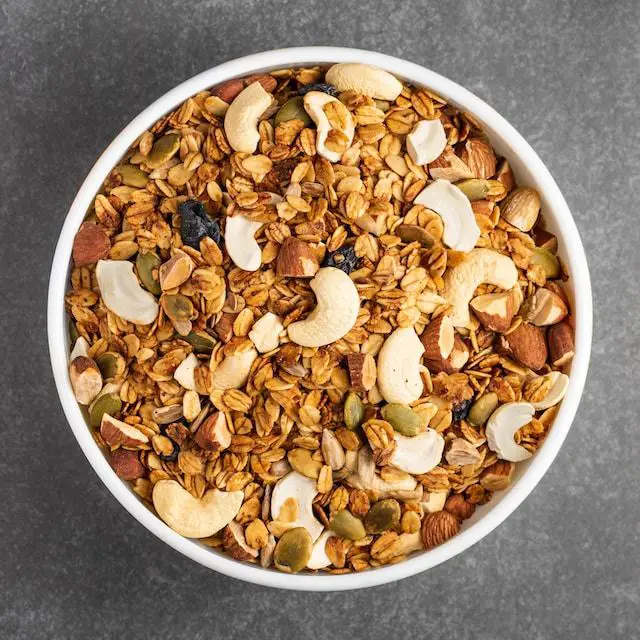Fiber is an essential nutrient that plays a vital role in maintaining a healthy digestive system. It is a type of carbohydrate that the body cannot digest, and therefore, it passes through the digestive tract without contributing to calorie intake.
Fiber is commonly found in plant-based foods such as fruits, vegetables, grains, nuts, and legumes. However, there is a widespread belief that consuming too much fiber can make you gain weight. In this article, we will explore whether or not too much fiber can make you fat.
Contents
Does It Make You Gain Weight?
Firstly, it’s important to understand that fiber alone does not cause weight gain. In fact, research has consistently shown that consuming high-fiber diets is associated with lower body weight and a lower risk of obesity.
Fiber has several benefits that can aid in weight loss, including increased feelings of fullness, reduced calorie intake, and improved insulin sensitivity.
However, it is possible to consume too much fiber, which can cause gastrointestinal discomfort, such as bloating, gas, and diarrhea.
Additionally, consuming excessive amounts of fiber may interfere with the absorption of essential nutrients, such as calcium, iron, and zinc, leading to deficiencies over time.
Therefore, it’s essential to consume fiber in moderation and meet your daily fiber requirements, which vary based on age, gender, and physical activity level.
Furthermore, consuming too much fiber may lead to weight gain if it causes an increase in calorie intake. Some people may believe that since fiber is low in calories, they can consume unlimited amounts without any consequences.
However, excessive fiber consumption may lead to an increase in appetite, leading to overeating and weight gain. Additionally, consuming high-fiber foods that are also high in calories, such as nuts and seeds, can lead to weight gain if consumed in large amounts.
Consulting a healthcare professional or a registered dietitian may be beneficial in determining your individual fiber needs and ensuring optimal nutrition.
Types Of Fiber
The following are the two main types of fiber, each with different characteristics and health benefits.
Soluble Fiber
This type of fiber dissolves in water to form a gel-like substance that slows down digestion and helps to lower cholesterol levels.
Soluble fiber is found in foods such as oats, barley, fruits (especially citrus fruits), vegetables (such as carrots and sweet potatoes), and legumes (such as beans and lentils).
Insoluble Fiber
This type of fiber does not dissolve in water and adds bulk to stool, promoting regular bowel movements and preventing constipation. Insoluble fiber is found in foods such as wheat bran, whole grains (such as brown rice and whole wheat bread), nuts, and seeds.

Some foods contain both soluble and insoluble fiber, while others may be higher in one type than the other.
For example, fruits and vegetables are generally higher in soluble fiber, while whole grains and wheat bran are higher in insoluble fiber. A balanced diet that includes a variety of fiber-rich foods from both categories is recommended for optimal health.
Ideal Consumption
The ideal consumption of fiber depends on a person’s age, gender, and overall health status. However, the general recommended daily intake of fiber is between 25 to 30 grams for adults. Here are some guidelines for ideal consumption of fiber:

Aim For A Variety Of High-Fiber Foods
Include a variety of high-fiber foods such as fruits, vegetables, whole grains, legumes, nuts, and seeds in your diet. This will ensure that you get a mix of both soluble and insoluble fibers.
Choose Whole Grains Over Refined Grains
When choosing grains, opt for whole grains instead of refined grains. Whole grains contain more fiber than refined grains, which have been stripped of their fiber content during processing.
Increase Fiber Intake Gradually
If you are not used to consuming high-fiber foods, it is important to increase your intake gradually. This will allow your body to adjust to the increased fiber intake and prevent digestive discomfort.
Drink Plenty Of Water
Drinking plenty of water is essential when consuming high-fiber foods. This will help prevent constipation and other digestive issues.

Consuming an adequate amount of fiber is crucial for maintaining optimal health. By following the above guidelines, you can ensure that you are getting enough fiber in your diet.
Health Benefits Of Consuming Fiber In Moderation
Consuming fiber in moderation is essential for maintaining optimal health. The following are some of the health benefits of consuming fiber in moderation:
- Promotes digestive health: Fiber adds bulk to stool, promoting regular bowel movements and preventing constipation. It also helps to maintain the health of the gut microbiome, the collection of microorganisms that live in the digestive tract and play a vital role in overall health.
- Lowers cholesterol levels: Soluble fiber, found in foods such as oats, barley, and fruits, can lower cholesterol levels by binding to cholesterol in the digestive tract and preventing its absorption into the bloodstream.
- Regulates blood sugar levels: Fiber can help to regulate blood sugar levels by slowing down the absorption of sugar into the bloodstream, reducing the risk of spikes and crashes in blood sugar levels.
- Aids in weight management: Fiber-rich foods are often low in calories and can help to increase feelings of fullness, reducing overall calorie intake and aiding in weight management.
- Reduces the risk of chronic diseases: Consuming a high-fiber diet has been associated with a reduced risk of chronic diseases such as heart disease, diabetes, and certain types of cancer.
- Improves satiety: Fiber helps to keep you feeling full and satisfied after a meal, reducing the likelihood of overeating or snacking on unhealthy foods.
Conclusion
Fiber is an essential nutrient that plays a crucial role in maintaining digestive health and preventing chronic diseases such as heart disease, diabetes, and certain types of cancer.
It is also important to drink plenty of water when consuming high-fiber foods and to increase fiber intake gradually to avoid digestive discomfort.
By incorporating fiber-rich foods into your diet and following these guidelines, you can reap the many health benefits of fiber and maintain optimal health.

